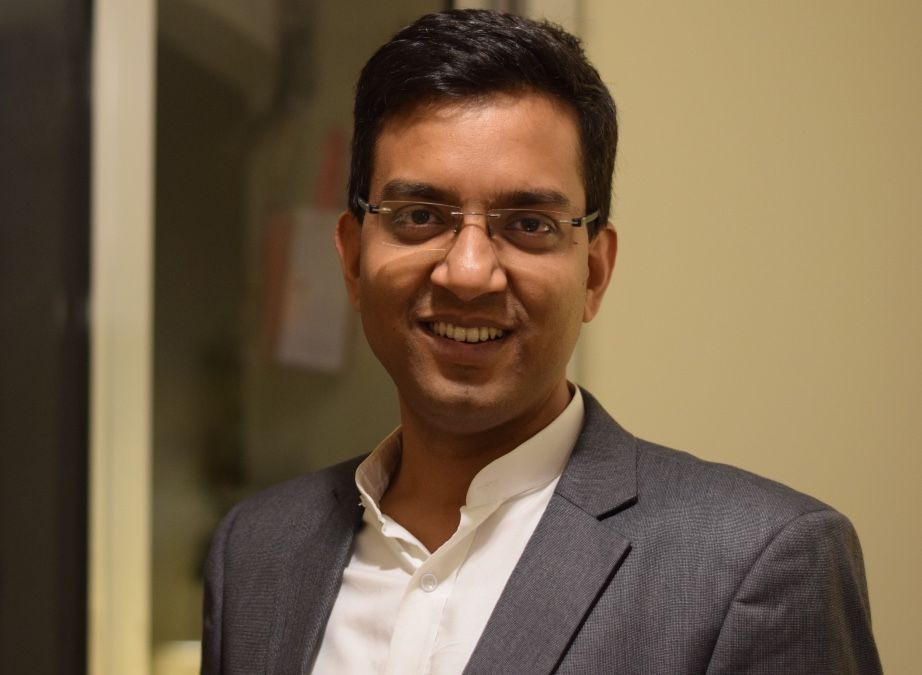Starting up and taking it to scale is not new to Abhishek Mukherjee. An MBA from SP Jain Institute, Abhishek has had hands-on experience for close to 15 years with the likes of Britannia, Unilever, Myntra, and more recently Ola.
Apart from operational experience, Abhishek has also co-founded Talking Street, a culinary tourism platform where he worked to build a mobile-first platform focused on content, community, and experience with social media.
With the Network of Indian Cultural Enterprises (NICE), he aims to bring his understanding and experience of building business plans, models, and scaling of products.
In conversation with YourStory, Abhishek Mukherjee, Senior Director, Ola Premium and International Categories, talks about his work with the Network of Indian Cultural Enterprises (NICE) programme and its core aims.
Edited excerpts from the interview:
YourStory (YS): Why did you decide to start NICE Aarohana Business Plan Competition? What does it aim to solve?
Abhishek Mukherjee (AM): NICE Aarohana Business Plan competition is the next phase of the Aarohana process. NICE (Network of Indian Cultural Enterprises) is a Section 8 not-for-profit company that was launched in 2020 to create an ecosystem comprising cultural entrepreneurs, investors, mentors, entrepreneurs, industry experts, and others.
The first phase of Aarohana , which began on October 31, 2020, and will culminate on January 23, 2021, is a series of workshop sessions for cultural entrepreneurs. Over 1,100 registrants from 25 countries and 190 cities, with marginally more women participants, were part of over 27 sessions conducted by 40 experts.
The NICE Aarohana Business Plan competition is a culmination of the workshops programme and is India's first and only business plan competition for cultural entrepreneurs. Our intent is to fill the gap in the ecosystem to recognise and mentor cultural ventures. This competition will be a great platform to assess and showcase the potential in this space.
YS: Why are you looking only at cultural entrepreneurs? How would they be defined?
AM: The cultural and creative economy comprises more than 3 percent of the global GDP. Cultural entrepreneurs aim to build successful businesses that deliver branded products and services based on India’s cultural traditions, practices, heritage, and know-how.
For now, we have chosen five focus areas: health, beauty, and wellness, food and beverages, fashion and accessories, home decor and furnishings, and experiential tourism.
This competition is open to all entrepreneurs in these five categories, for idea-stage ventures with no revenues and companies already generating revenues. Applications must be submitted by January 26 on the NICE website.
YS: What are the selection criteria and judging parameters?
AM: Applications from the five categories will be classified into two stages: Early (idea-stage ventures with zero to up to Rs 50 lakh per year in revenues) and growth (companies generating more than Rs 50 lakh in revenue per year).
All applications will undergo a two-step filtering process: first, by NICE and then, by a selection panel. The final 10 shortlisted from each of the early and growth stages will present to an eminent jury of investors and industry experts on February 26 and 27.
The final 10 from each of the two groups will be mentored prior to their final pitches by industry experts and seasoned entrepreneurs (part of the NICE network). In the finals, the jury will select the top three from each stage.

YS: What benefits do startups get by being a part of this?
AM: We feel the biggest benefits are idea validation, recognition, and encouragement. We are offering a cash prize worth Rs 3 lakh, a certificate, and mementos to all winners. We will also offer mentorship by industry experts on pitching and all aspects of business plan, showcasing to investors and industry experts, and networking opportunities.
YS: How do you aim to further help startups?
AM: We plan to continue guiding and mentoring all startups that apply to the Business Plan Competition. During the application and pitching process, we will gather and gauge the exact guidance required and accordingly engage with entrepreneurs. We intend to customise inputs depending on the stage of the startup and look at all aspects - idea, product-market fit, customer insights, business model, team, branding, Go-To-Market, investor support, and government support.
YS: What are your future plans?
AM: We have started putting together an ecosystem of entrepreneurs, mentors, investors, and community. We intend to help companies and entrepreneurs fulfill their dreams and aspirations for the cultural enterprises they are building. There are plans for city-wise chapters, connects with investor and angel networks, advocacy and liaisoning with the government and incubators, and building a community of NICE Friends.
Edited by Teja Lele Desai
Link : https://yourstory.com/2021/01/ys-learn-ola-culture-entrepreneurship-startups
Author :- Sindhu Kashyaap ( )
January 12, 2021 at 05:55AM
YourStory

